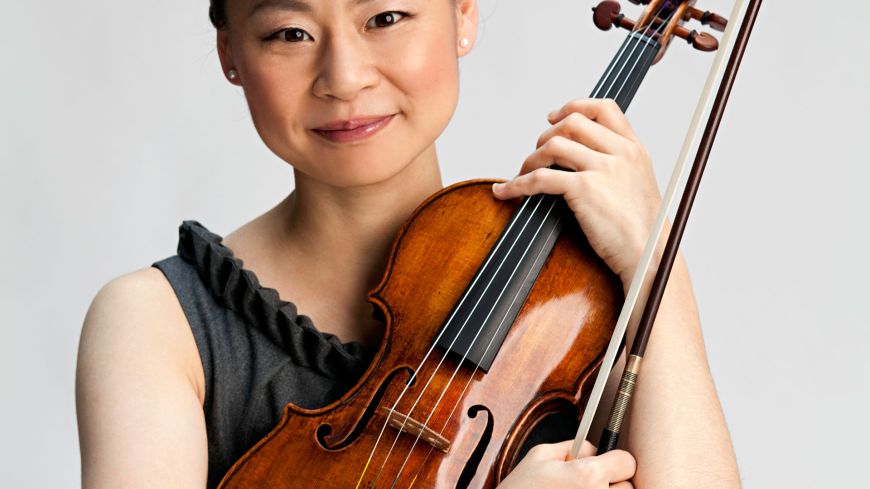
Midori astonished me in Hong Kong nearly a quarter of a century ago by her assurance, as a girl barely in her teens, in coping with a large press conference. She silenced one Chinese reviewer noted for his complicated, abstruse questions.
“I don’t think about things like that,” she said. “I just try to give the audience what they want.”
She did that in her concert performance later – and certainly did so in the first of her two Edinburgh Festival appearances. A full-to-capacity Queens Hall was transfixed.
The young prodigy had matured into a musician of technical perfection with an insight that produced an impeccable performance.
Her look of severe concentration while playing turned into broad smiles as she acknowledged resounding applause for the two Bach sonatas.
There was a step forward from Bach after the interval in a work that displayed Midori’s affinity for more modern music. Schnittke’s tribute to Shostakovich was a complicated piece where the solo violinist is aided by another, hidden, violinist or, in this case, a tape recording. This added a somewhat funereal note with sounds recalling the tolling of a funeral bell.
Midori set the mood with a dirge-like opening. Subsequent passages required perfect timing to synchronise with the tape. With recurrent traces of Shostakovich, multiple themes, and changes of tempo, Midori produced an emotion-packed whole.
Bach’s Partita, the final item, is essentially a suite based on five traditional dances. Unusually the fifth piece Ciaconna is longer – and technically more demanding – than the total of its four predecessors. Midori, at her best in this physically exhausting finale, won vociferous acclaim from a delighted audience. She had to make repeated returns to the platform before the applause subsided.
Event: Thursday 22 August at 11 am

